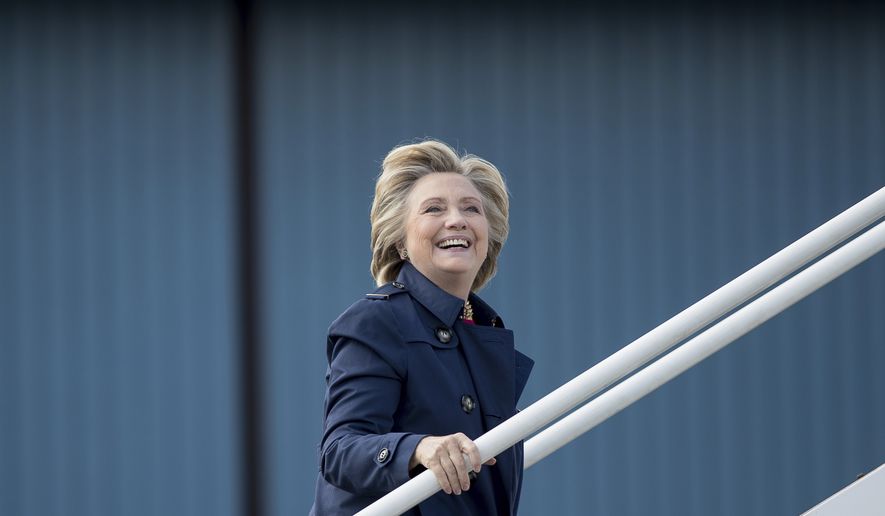Secret draft grand jury indictments prepared to charge Hillary Clinton with crimes in the 1990s cannot be released because they would infringe on the Democratic presidential nominee’s privacy rights, a federal judge ruled Tuesday.
Judge Reggie B. Walton shot down a request by Judicial Watch to reveal the draft indictments, saying they are protected from disclosure because they disclose the inner workings of a grand jury, and because Mrs. Clinton was never charged — so releasing the unfulfilled case documents against her would be unfair.
“Mrs. Clinton has a significant privacy interest in not revisiting past criminal investigations, particularly when the investigation resulted in an indictment never being filed against her,” Judge Walton wrote in his opinion.
He said that there is information in the draft indictments that hasn’t been seen by the public — and that’s why the law requires that it be kept secret.
Multiple draft indictments were prepared by prosecutors thinking of charging Mrs. Clinton for wrongdoing in Whitewater, a failed Arkansas savings and loan. Investigators suspected Mrs. Clinton of obstructing their probe, including concealing documents under federal subpoena, but ultimately declined to pursue the case.
The documents all sit in the National Archives, which fought against their release.
Judicial Watch argued that since the independent counsel’s final report was made public, much of the grand jury information is already known, so releasing more documents wouldn’t hurt. The conservative legal group also said the public’s right to know outweighed any privacy interest Mrs. Clinton retains.
But Judge Walton said Mrs. Clinton wasn’t a federal officer at the time of the events under investigation, and the independent counsel that conducted the probe is defunct, so there’s no public benefit to understanding the operations of government. Without that, he said, Mrs. Clinton’s privacy rights outweigh Judicial Watch’s effort to get a look at information that goes to her character.
Judicial Watch had argued it wasn’t seeking any medical or financial information about the former first lady, senator and State Department secretary, so whatever privacy interest she had was minimal.
“The findings of an investigation into whether Mrs. Clinton told the truth to federal investigators and withheld evidence under subpoena while she was first lady is clearly matter of public interest as voters weigh her suitability for the highest office in the land,” the group said.
Judge Walton, though, said precedent was clear. He said when a liberal interest group tried to obtain the investigative files on former House Majority Leader Tom DeLay, a Republican who’d been probed by the FBI, federal courts ruled that an invasion of privacy.
• Stephen Dinan can be reached at sdinan@washingtontimes.com.




Please read our comment policy before commenting.